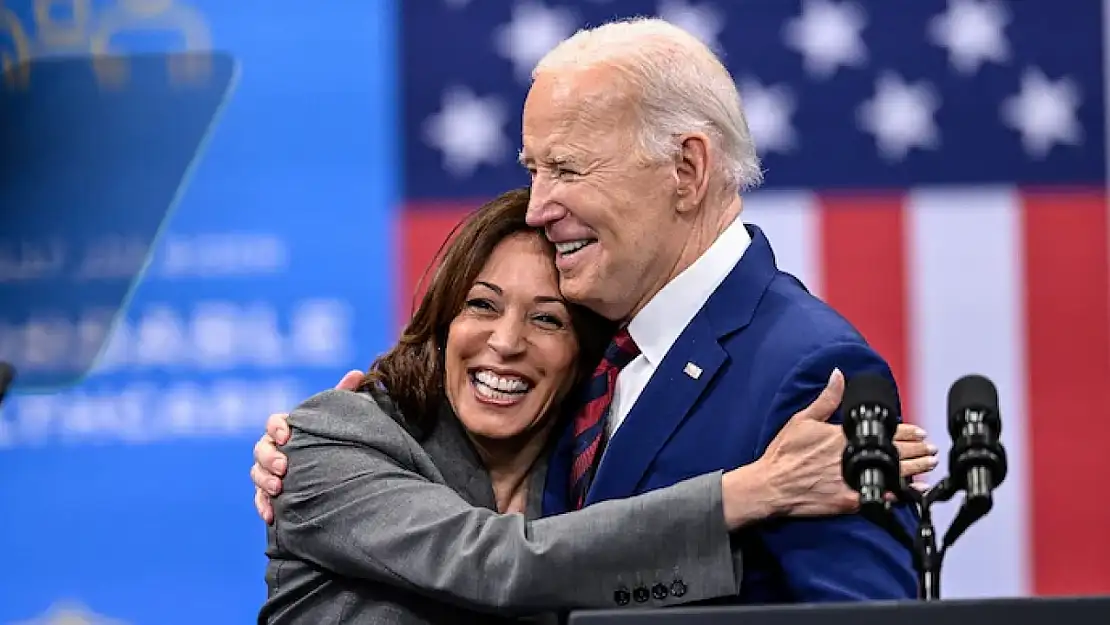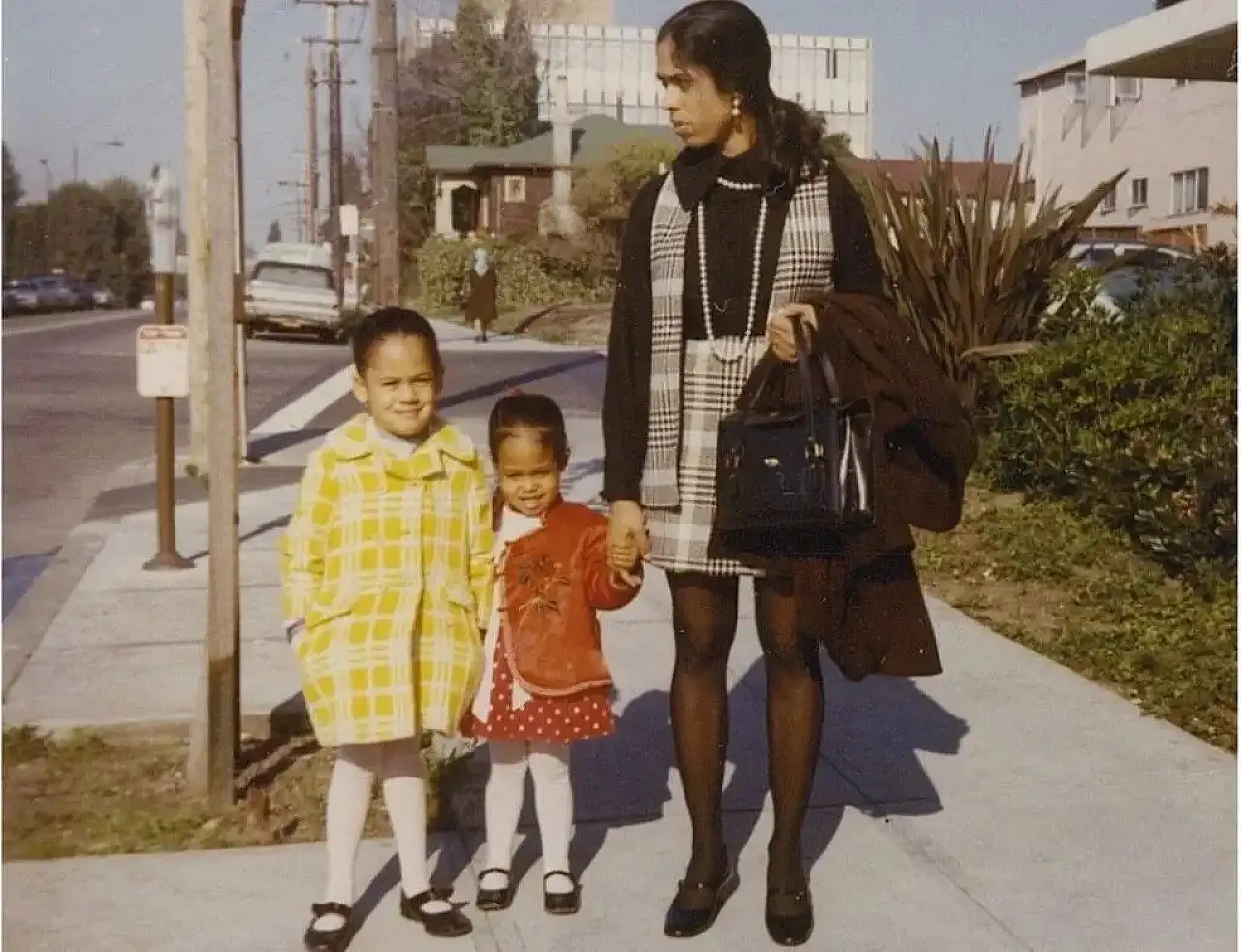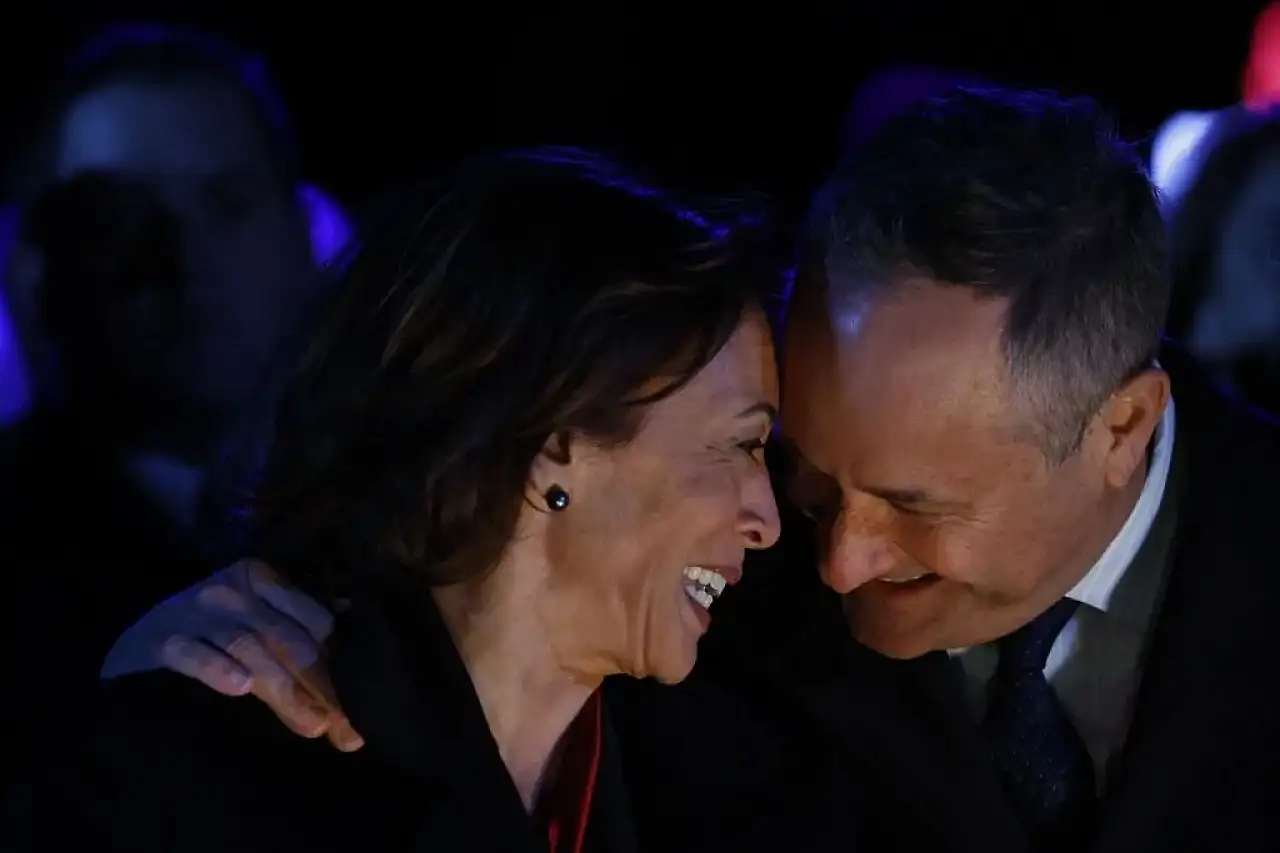Who is Kamala Harris and why is she famous?
President Joe Biden said that he will not seek reelection and endorsed Vice President Kamala Harris.
“Today I want to offer my full support and endorsement for Kamala to be the nominee of our party this year. Democrats — it’s time to come together and beat Trump. Let’s do this,” Biden said in a post on X.
He said picking Harris as his running mate in 2020 has “been the best decision I’ve made.”
Who is Kamala Harris?
Just five years ago, Ms Harris was the senator from California hoping to win the Democratic nomination for presidency.
She began her career in the Alameda County District Attorney's Office and became the district attorney - the top prosecutor - for San Francisco in 2003, before being elected the first woman and the first black person to serve as California's attorney general, the top lawyer and law enforcement official in America's most populous state.
She gained a reputation as one of the Democratic party's rising stars, using this momentum to propel her to election as California's junior US senator in 2017.
But her presidential aims were unsuccessful in 2020.
Her adept debate performances were not enough to compensate for poorly articulated policies.
Her campaign died in less than a year and it was Mr Biden who returned the now 59-year-old to the national spotlight by putting her on his ticket.
Gil Duran, a communications director for Ms Harris in 2013 who critiqued her run for the presidential nomination, called it “a big reversal of fortune for Kamala Harris”.
"Many people didn't think she had the discipline and focus to ascend to a position in the White House so quickly... although people knew she had ambition and star potential. It was always clear that she had the raw talent,” Duran said.
Ms Harris focused on several key initiatives while in the White House and she was instrumental in some of the Biden administration's most touted accomplishments.
She launched a nationwide “Fight for Reproductive Freedoms” tour advocating for women to have the right to make decisions about their body. She highlighted harm caused by abortion bans and called on Congress to restore the protections of Roe v Wade after the Supreme Court's conservative justices overturned the constitutional right to abortion in 2022.
Ms Harris set a new record for the most tie-breaking votes cast by a vice president in the history of the Senate. Her vote helped pass the Inflation Reduction Act and the American Rescue Plan, which provided COVID relief funding including stimulus payments.
Her tie-breaking vote also confirmed Justice Ketanji Brown Jakson to the Supreme Court.
But she also struggled to achieve broad appeal among Americans, facing criticism on all sides.
Despite leftward leanings on issues like gay marriage and the death penalty, she faced repeated attacks for not being progressive enough for some Democratic voters. "Kamala is a cop" was a common refrain on the 2020 campaign trail.
Mr Biden also called upon Ms Harris to lead efforts addressing the root causes of migration as a record number of immigrants fled to the US-Mexico border, an issue opponents point to as one where she hasn't made enough progress.
She received backlash from Republicans and some Democrats for taking six months to plan a trip to the border after entering office.
But in recent weeks, as speculation about Mr Biden's ability to win in November swirled, she found a renewed base of support.
The many identities of Kamala Harris
Born in Oakland, California, to two immigrant parents - an Indian-born mother and Jamaican-born father - her parents divorced when she was five and she was primarily raised by her Hindu single mother, Shyamala Gopalan Harris, a cancer researcher and civil rights activist.
She grew up engaged with her Indian heritage, joining her mother on visits to India, but Ms Harris has said that her mother adopted Oakland's black culture, immersing her two daughters - Kamala and her younger sister Maya - within it.
"My mother understood very well that she was raising two black daughters," she wrote in her autobiography The Truths We Hold. "She knew that her adopted homeland would see Maya and me as black girls and she was determined to make sure we would grow into confident, proud black women."
Her biracial roots and upbringing mean she embodies and can engage with and appeal to many American identities. Those parts of the country which have seen rapid demographic change, enough change to alter a region's politics, see an aspirational symbol in her.
But it was her time at Howard University, one of the nation's preeminent historically black colleges and universities, which she has described as among the most formative experiences of her life.
Lita Rosario-Richardson met Kamala Harris while at Howard in the 1980s when students would gather in the Yard area of the campus to hang out and discuss politics, fashion and gossip.
"I noticed she had a keen sense of argumentation," she said.
They bonded over an aptitude for energetic debate with campus Republicans, their experience growing up with single mothers, even just both being the Libra star sign. It was a formative era politically too.
"Reagan was president at the time and it was the apartheid era and there was a lot of talk about divestiture with 'trans Africa' and the Martin Luther King holiday issue," Ms Rosario-Richardson said.
"We know that, being descendants of enslaved people and people of colour coming out of colonisation, that we have a special role and having an education gives us a special position in society to help effect change," she explained - it was a philosophy and a call to action that was part of the university experience Ms Harris lived.
But Ms Harris also operates with ease in predominantly white communities. Her early years included a brief period in Canada. When Ms Gopalan Harris took a job teaching at McGill University, Ms Harris and her younger sister Maya went with her, attending school in Montreal for five years.
Ms Harris says she's always been comfortable with her identity and simply describes herself as an "American".
She told the Washington Post in 2019 that politicians should not have to fit into compartments because of their colour or background.
"My point was: I am who I am. I'm good with it. You might need to figure it out, but I'm fine with it," she said.
The making of witty 'debate club' Kamala
From the very earliest, as her friend Ms Rosario-Richardson attests, she showed the skills that allowed her to be one of few women to break through barriers.
"That is what attracted me to get her to join debate team [at Howard University], a fearlessness," she said.
Wit and humour is part of that armoury. In a video posted to her social media in 2020 after winning the election, she shares the news of the win - with a very hearty laugh - with Mr Biden: "We did it, we did it Joe. You're going to be the next president of the United States!"
The laugh she greeted the then president-elect with, when making that first momentous phone call, was one her friend recognised immediately and intimately.
"It clearly shows her personality, even in the short time she has been on the campaign trail."
"She has always had that laugh, she has always had a sense of humour too, she had a sense of wit - even in the context of a university debate - to get those points across."
The ability to deliver zingers to her opponents in live debate was very much part of the momentum behind the start of her bid for the Democratic presidential nomination.
In 2014, then-Senator Harris married lawyer Doug Emhoff and became stepmother to his two children.
She wrote an article for Elle magazine in 2019 about the experience of becoming a stepmother and unveiled the name that would then come to dominate many headlines that followed.
"When Doug and I got married, Cole, Ella, and I agreed that we didn't like the term 'stepmom'. Instead they came up with the name 'Momala'."
They were portrayed as the epitome of modern American "blended" family, an image the media took to and one that occupied many column inches about how we talk about female politicians.
Many argue she should also be seen and recognised as the descendant of another kind of family and that is the inheritor of generations of black female activists.
"She is heir to a legacy of grassroots organisers, elected officials, and unsuccessful candidates who paved this path to the White House. Black women are seen as a political force of nature in democratic politics and the Democratic party," Nadia Brown, associate professor of political science and African American studies at Purdue University, told the BBC.
Fannie Lou Hamer, Ella Baker and Septima Clark are some of the names she follows in the footsteps of, Ms Brown argues.
"Her win is historic but it is not hers alone. It is shared with countless black women who made this day possible."
Bakmadan Geçme








